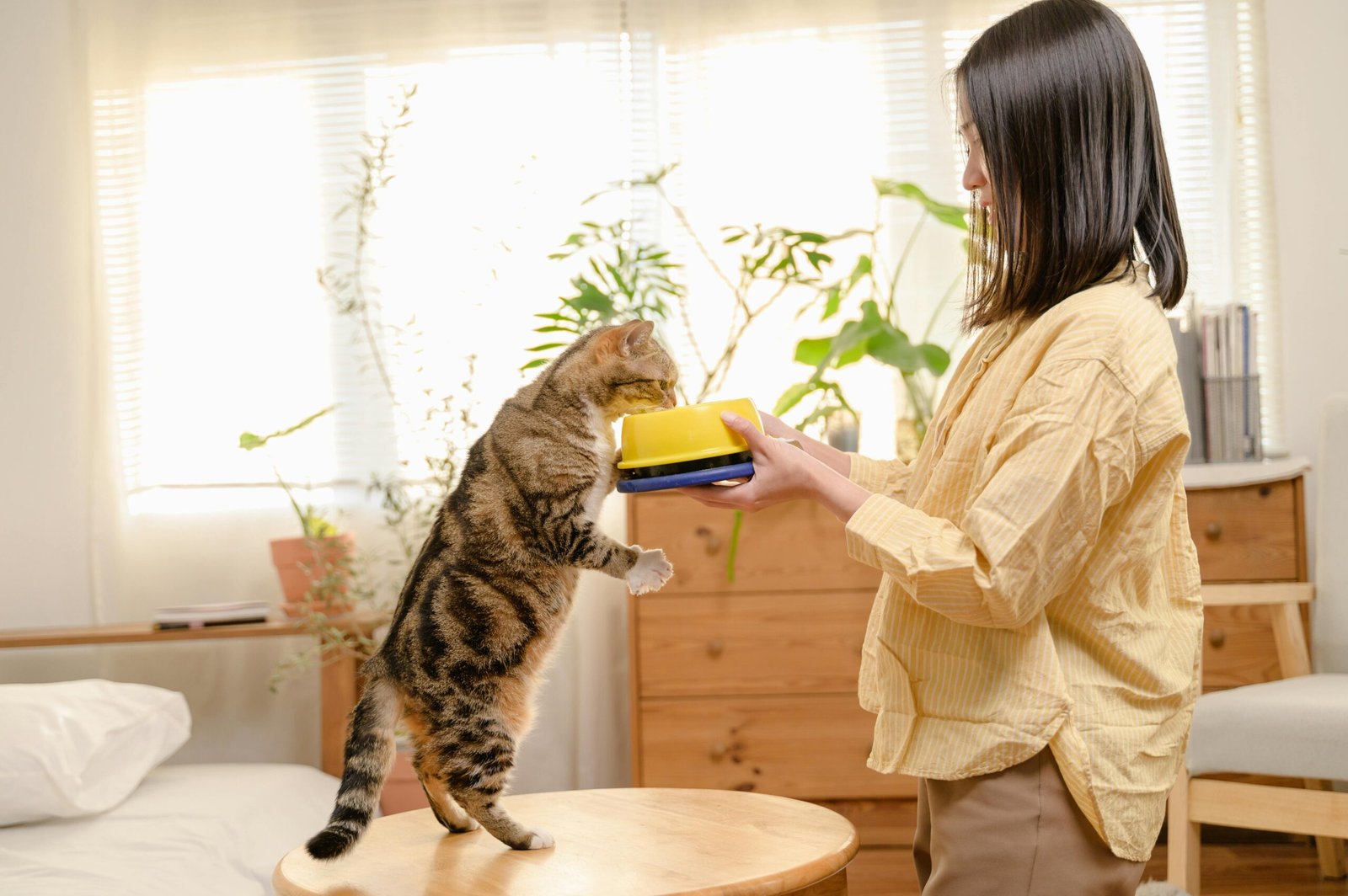Can Kittens Eat Adult Cat Food?
Discover if Can Kittens Eat Adult Cat Food? , understand the nutritional needs, and find out when can kittens eat adult cat food safely. This guide answers the common question Can Kittens Eat Adult Cat Food?, and provides essential feeding advice for kitten owners.
Introduction
Introducing the topic of whether kittens can eat adult cat food is crucial for pet owners seeking to provide the best care for their feline companions. Many wonder, Can kittens eat adult cat food? Understanding this aspect of feline nutrition is vital. When pondering the question, Can kittens eat adult cat food?, one must consider the nutritional needs of kittens compared to adult cats.
Kittens grow rapidly and require specific nutrients found in kitten food, which is often questioned if lacking in adult cat food. So, Can kittens eat adult cat food? becomes a significant query for those nurturing these young pets. The dietary requirements of kittens are different, leading to the frequent asking of Can kittens eat adult cat food?
In the journey of kitten growth, the question Can kittens eat adult cat food? surfaces repeatedly, emphasizing the need for appropriate nutrition. It’s not just about filling their stomachs; it’s about asking, Can kittens eat adult cat food? and understanding what’s best for their development.
This common question, Can kittens eat adult cat food?, reflects the concern of pet owners about meeting their kitten’s dietary needs. When examining kitten care, Can kittens eat adult cat food? is a question that cannot be ignored.
Given the specific dietary needs of these young animals, Can kittens eat adult cat food? is a question that merits careful consideration. Each time we feed our pets, we must contemplate, Can kittens eat adult cat food?, ensuring they receive the nutrition they need for growth and health.
addressing the question Can kittens eat adult cat food? is essential for the health and wellbeing of kittens, making it a fundamental aspect of kitten care.
Understanding Cat Food:
Talking about cat nutrition, a common question is, Can kittens eat adult cat food? Before diving into the menu for our little kittens and fully grown cats, it’s crucial to understand their dietary preferences. Cats are notoriously picky and have a strong preference for meat. This leads to the question: Can kittens eat adult cat food? considering adult cat food is often meat-rich but might lack certain nutrients needed by kittens.
When exploring Can kittens eat adult cat food?, remember that while adult cats thrive on a diet filled with meaty goodness, kittens need more specialized nutrition. This brings us back to the important question: Can kittens eat adult cat food? It’s not just about meat; kittens require essential nutrients like taurine, arachidonic acid, and vitamin A to grow healthy and strong.
Delving further into Can kittens eat adult cat food?, we understand that kittens need these nutrients in higher amounts than what adult cat food typically offers. This necessity stems from their rapid growth and development needs. So, when pondering over Can kittens eat adult cat food?, it’s essential to consider that while they might enjoy the taste, the nutritional content may not be adequate for their growth requirements.
Addressing the query Can kittens eat adult cat food? also involves recognizing that kittens’ digestive systems are more sensitive than those of adult cats. Therefore, giving kittens adult cat food might not only miss meeting their nutritional needs but could also lead to digestive issues.
Kitten Grub Needs:
Now, let’s have a heart-to-heart about that adorable little ball of fur you’ve got. Picture kittens as these mini athletes in full training mode. They’re not just lazing around; nope, these tiny fur bundles are on a rapid growth journey. Their bodies are in overdrive, and they need the absolute right kind of fuel to keep up with this speedy transformation. So, what exactly is on their menu? Let’s unravel the mystery of what these little athletes need to thrive and grow into the awesome adult cats they’re destined to become.
Protein PowerKitten Grub Needs:
Now, let’s talk about your tiny ball of fur. Kittens are like little athletes in training. They’re growing fast, and their bodies need the right stuff to keep up. So, what’s on their menu?
Protein Power:
Kittens require a good amount of protein to help their muscles and organs grow strong and healthy. It’s crucial to choose cat food that has excellent protein from animal sources when selecting their meals. This special ingredient provides the essential building blocks that contribute to the overall well-being and development of your fluffy little friend.So, make sure to check the labels on cat food that proudly mention high-quality, animal-based protein.
Fat Fuel:
Fat is like the fuel for their mini rockets. It gives them energy to play and grow. Omega-3 and omega-6 fatty acids are like the secret sauce for their skin and fur.
Vitamins and Minerals:
Kittens need a bunch of vitamins and minerals, like calcium and phosphorus, to build sturdy bones. Vitamin A is the superhero for their eyes, immune system, and skin.
Taurine Tango:
Taurine is this special amino acid that keeps their hearts happy and healthy. They need it in their food.
Arachidonic Acid Adventure:
This funky acid is another must-have for kittens. It keeps their skin, reproductive system, and everything in between in check.Fat Fuel: Fat is like the fuel for their mini rockets. It gives them energy to play and grow. Omega-3 and omega-6 fatty acids are like the secret sauce for their skin and fur.
Vitamins and Minerals:
Kittens need a bunch of vitamins and minerals, like calcium and phosphorus, to build sturdy bones. Vitamin A is the superhero for their eyes, immune system, and skin.
Taurine Tango:
Taurine is this special amino acid that keeps their hearts happy and healthy. They need it in their food.
Arachidonic Acid Adventure:
This funky acid is another must-have for kittens. It keeps their skin, reproductive system, and everything in between in check.
Tips-Can Kittens Eat Adult Cat Food?
Nutritional Needs:
Understand that kittens have different nutritional requirements than adult cats. Kittens need more protein, amino acids like taurine, and calories to support their rapid growth and development. Adult cat food might not provide these in the right quantities.
Consult a Vet:
Before considering feeding your kitten adult cat food, consult with a veterinarian. They can provide guidance based on the specific health needs and growth stage of your kitten.
Gradual Transition:
If you must transition a kitten to adult cat food for any reason, do it gradually to avoid digestive upset. Mix a small amount of adult food with their kitten food, slowly increasing the proportion over time.
Avoid Regular Feeding:
Even if a kitten seems to tolerate adult cat food, it should not be a regular part of their diet. Kittens should primarily eat food designed for their age group.
Watch for Issues:
Monitor your kitten for any signs of digestive problems or poor growth if they consume adult cat food. Symptoms like diarrhea, vomiting, or weight loss warrant immediate veterinary attention.
Supplement if Necessary:
If there’s no alternative and a kitten must eat adult cat food temporarily, consider supplementing their diet with additional nutrients. Your vet can recommend appropriate supplements to ensure they’re getting what they need.
Quality Matters:
If a kitten has to eat adult cat food, choose a high-quality brand that is rich in protein and low in fillers. The better the quality, the more likely it is to meet the nutritional needs of a growing kitten.
Long-Term Health:
Remember that the diet a kitten receives can impact their health in the long term. Ensuring they get proper nutrition early on is crucial for their development and future well-being.
FAQ’s-Can Kittens Eat Adult Cat Food?
1. Can kittens eat adult cat food safely?
While kittens can physically eat adult cat food, it’s not recommended. Kittens have specific nutritional needs that adult cat food doesn’t meet, such as higher protein levels and essential nutrients necessary for their growth and development.
2. What happens if a kitten eats adult cat food?
Eating adult cat food occasionally might not harm the kitten, but regular consumption can lead to nutritional deficiencies or imbalances. Kittens need food that supports their rapid growth, something adult cat food is not formulated to do.
3. At what age can kittens start eating adult cat food?
Kittens should ideally be transitioned to adult cat food when they reach around one year of age. This transition should be gradual to allow their digestive system to adapt.
4. Are there any specific ingredients in adult cat food that are harmful to kittens?
It’s not that the ingredients in adult cat food are harmful to kittens, but the nutritional balance is not suited for them. Kittens need higher levels of certain nutrients like protein, taurine, and calcium, which are often at lower levels in adult cat food.
5. Can I feed my kitten adult cat food if I run out of kitten food?
In an emergency, you can feed your kitten adult cat food temporarily, but it should not become a regular substitute. Try to obtain kitten food as soon as possible to ensure your kitten is receiving the appropriate nutrition.
6. How can I supplement adult cat food for a kitten if necessary?
If you must feed your kitten adult cat food temporarily, supplement it with kitten-specific nutrients or a high-protein, nutrient-rich additive recommended by a veterinarian.
7. What are the long-term effects of feeding a kitten adult cat food?
Feeding a kitten adult cat food on a long-term basis can lead to growth and developmental issues due to nutritional deficiencies, affecting their overall health and well-being.
8. How can I ensure my kitten gets the right nutrition?
The best way to ensure your kitten gets the right nutrition is by feeding them a high-quality kitten-specific food, which contains the appropriate balance of nutrients they need to grow healthy and strong.
9. Are there any brands of cat food that are suitable for both kittens and adult cats?
Some brands offer all-life-stages formulas that are designed to meet the nutritional needs of cats at every life stage, including kittens. However, it’s important to check the nutritional content to ensure it meets the specific needs of a growing kitten.
10. Can the feeding frequency differ when switching from kitten to adult cat food?
Kittens usually need to eat more frequently than adult cats because of their high energy and growth requirements. Even when transitioning to adult food, they may still need to eat more often until their growth starts to slow down.
Read Article:Traditional Cuban Clothing







